Kate Bowler: I’m Kate Bowler, and this is Everything Happens. I’m a historian, author, aggressively, fast walker. But lately, in a world that promises endless progress, even now in a pandemic, I realized I just need to be a person. It’s hard to give up on the feeling that the life you want is just out of reach. If only you tried to eat this food, find that relationship, just get the kids graduated or the parents this kind of care. Only then will I feel different. Better. Whole. But that’s not the way this works. When I was 35, I was diagnosed with stage four cancer. And here’s the very fun thing about that. The world loves you better when you are shiny, when you are cheerful, when you still believe that your best life now is right around the corner. I’ve written multiple books on the history of the idea that you can always fix your life. So I’m going to be the one to say it. There are some things we can change and some things we can’t. And it’s OK that life isn’t always getting better. We can have beauty and meaning, community and love, and we will need each other if we’re going to tell the truth. Life is a chronic condition and there’s no cure for being human.
Kate: This is about the stories we tell ourselves, the stories that wrap around us like a blanket. You were always a fighter. This runs in the family. You’re just like your dad. A story becomes a history, an account of us. And sometimes it’s true and sometimes it isn’t. And sometimes it’s simply the story that we know how to live with. Today, we’re going to be talking about the stories that enfold questions of adoption, questions about parentage, birth parents, adoptive parents and the way we understand how we belong. This is what my guest Nicole Chang beautifully calls family lore. Nicole Chung’s beautiful writing has appeared in The New York Times, the New York Times magazine, and she also writes a weekly advice column for Slate. She is the editor in chief of Catapult magazine and the former managing editor of one of my very favorite websites from yesteryear, The Toast. And her best selling debut memoir, All You Can Ever Know, was named a best book of the year by like a zillion outlets. It is the gorgeous story of family secrets and questions around belonging as she unravels her experience of being adopted. Nicole, I have been looking forward to this conversation for such a long time. Thank you so much for being here.
Nicole Chung: That’s my pleasure. I’ve been looking forward to it, too. Thanks for inviting me.
Kate: When I was reading your book, I couldn’t stop thinking that you’re telling me a story about formulas, like there’s a formula for the way that we talk about adoption that I didn’t realize until I read your work, like maybe an adopted person will be told: you’re so lucky your parents chose you or your birth parents must be such brave people, they chose what was best for you. And every part of the story sounds uncomplicated, like tidied up, but none of it is quite right. I thought maybe we could start at the beginning with your adoption and your understanding of it as a child. What was the story about your birth and adoption that you had at the time?
Nicole: I remember being very, very young and sitting in my mother’s lap and hearing the story and I would ask to hear it over and over because I was I was looking for comfort and familiarity and because even as a very young child, without the language, without the emotional maturity to really say everything I was feeling like I did. I wanted to hear the story. It wasn’t because it wasn’t painful in a way. It was because I did find it painful and I was trying to understand that and like trying to put words to it, though what I always heard was the same. Your birth parents were Korean immigrants. They came here from Korea. They had you very, very early. I was born, estimates vary, but probably around twenty six, twenty seven, twenty eight weeks at the most. You were supposed to have a lot of medical problems and your birth parents thought they wouldn’t be able to give you the life you deserve. And so they thought adoption was the best thing for you. And you know, this is the story I heard over and over. My parents never wavered in the telling of it.
Kate: I was so struck by the the frequency and the just I mean, sheer inappropriateness of of the way that you from already a very young age, you had to give an account of yourself as if you’re some kind of problem that needs to be solved and that other adults are allowed to ask you about your origin story.
Nicole: Yeah. You kind of expect it from your peers in a way, like from kids. Kids don’t have filters. It’s one of the great and terrible things about children. And some of them were trying to be cruel, but most truly were not. Most were curious. With adults, though, you’re right, like the questions that adults often feel entitled to ask, I mean, children generally and then adopted kids in particular, the questions people ask when what they see like isn’t necessarily what they expect, though in my case, a Korean child with white parents in a very white town, I was asked from a really young age to explain my presence there and explain my family to people. Everyone would want to ask, like where I was from. I had other kids ask me just a lot of questions. And I just vividly recall being asked, like, how much did your parents pay for you? Like at a very young age. I did not know. And there is no way my mother would have told me at that age or my father, like I was just sitting with the like pain and audacity of that question. But those are the types of questions I really did get. And it was partly because it was a transracial adoption, so the difference announced itself in this super obvious way, and it did, it invited, seemed to invite a lot of comments, a lot of questions, people really just looking to me, a child to explain like how this came to be.
Kate: Yeah. Yeah. I always find you can hear it in the tone of voice, like there’s a casual tourism about it, like so like they’re allowed to visit a place in your life that’s tender and does not involve them, does not require their presence there.
Nicole: I always thought by telling this story like this familiar like story, people would accept that and then stop asking me questions. In fact, that is not usually what happened. I remember being so puzzled by that. But this is the story and this is the only story I have. Like, I don’t have more details to give you, even if I wanted to. It was this constant feeling of like just not having the answers I knew people wanted. And at the same time there was this need that many people have and had I think when I was growing up to like see adoption in these very simplified terms, in a way, it’s surprising that more people didn’t kind of just accept that story and move on.
Kate: Yeah.
Nicole: Like we do. Like you said, we often want it to be like those simple birth parents make a noble sacrifice. Adoptive parents get the child they’ve longed for. Everyone is happy. No one has any problems. And in fact, of course, it’s it’s far more complicated than that.
Kate: Yeah. I think we’re about, I think we’re ish the same age. So you’re growing up in the eighties, is that right?
Nicole: Yeah, yeah. I’m thirty nine right now.
Kate: So, you know, it did seem like a generational choice that that your parents were trying to be colorblind as they understood it when it came to raising you. What was behind that and what do you think you maybe gained or lost by that choice?
Nicole: So, at the time I was adopted, my adoptive parents asked, like many people, people they considered experts like the social worker at the agency, the lawyer who handled the adoption, the judge who finalized it. They asked, like, is there anything in particular, anything special we should know? Anything we need to do because she’s Asian and we’re not. And my mother has hilariously told me, like, I thought someone would recommend a book or something. But like no one did, mostly they just kind of took a moment and then they’re like, no, you just, you know, love and assimilate her. The word the judge used was assimilate and then like, everything will be fine. You know, she’s yours now. And in a sense, this was the easier answer for them to hear. Right? Maybe even what they wanted are expected to hear. But I also believe my parents were like well intentioned and also humble enough that if someone had told them something different, like actually, yeah, this will be a thing like you need to be ready to talk about it and and to talk about race and to talk about racism, like I believe they would have tried to hear that, not to say they wouldn’t have made some mistakes because we all do, but I think they would have taken that advice if it had been offered. The fact is, it wasn’t. They were told really like just raise her as you would any other kid. You can raise her like you would a white kid. And that was one of those things where recommendation’s kind of lined up with what was probably more comfortable for them anyway.
Kate: Yeah.
Nicole: The result being that, you know, of course, like I knew from a pretty young age that my race and the way I looked and presented to the world like did matter to some people mattered very much. It was not what I was, like led to expect growing up in my family. And for what it’s worth, you know, I don’t think it mattered to my parents in the sense that, of course, it didn’t affect how much they loved me or like loved our family. And that, too, can be a I don’t want to say like a blinding factor, but like I mean, they didn’t see me as their Korean child. They saw me as their child. And so it was very easy for them to believe that was how other people would see me, too.
Kate: Yeah. Yeah. But just that I mean, I imagine that that. Like silence around what it would mean for you to exist in the world led to I mean, you write about how you started to withdraw. It was just hard to to sort of bear the full weight of everybody else’s either casual racism or hammering home your adoption story, but it just it created a kind of barrier that that must have felt like it. There just wasn’t enough categories to really fully understand what belonging should feel like.
Nicole: It was hard to put words to like what I wasn’t seeing. Like I did not see other Asians very much. I did not have like any Korean friends until college, actually, so, you know, just spending my whole childhood with no access to other Koreans, to people who looked like me, to like my culture and what it meant other than I knew it meant experiencing like racism or micro aggressions. But I didn’t like know like what positive things I could associate with it. Like, it was sort of like I was defined by the lack of something.
Kate: Yes. That makes sense.
Nicole: Lack of whiteness and also lack of access to my heritage rather than like actually having something like if I had grown up in a Korean family, like, I would also have I would have known like what it meant in a sense, at least to be Korean in my family. And I didn’t really have that. It was hard. It was isolating. And just like thinking about your last question, too, I think my adoptive parents were very like a lot of other like basically well intentioned white people in really honestly believing that, like, your race shouldn’t matter. What should matter is the person that you are like that is and it’s not that that’s not true. It’s just of course, it’s much more complicated than that. You can be a wonderful person. And that just doesn’t inoculate you from racism in this country.
Kate: Yeah, yeah. This is only tangentially related. The last history book I wrote was about the history of Christian women. And, you know, it’s hard now to understand the context of debates over like that there was any debate over what to do about whether a woman is in a in the context of domestic abuse. But I interviewed all these female leaders who were leading in the 80s and they were like, Kate you don’t understand. Like I get a book, like our resource was a book. And, you know, I was just kind of struck by like they got handed a Focus on the Family book, and that’s how we made decisions is James Dobson told us like how this should work?
Kate: I was so struck by how even just the changing laws later on in your life affected how you were able to engage with the closed nature of your adoption, just how much, you know, the history of adoption changed as you were trying to figure out what it meant for your life.
Nicole: You know, because mine was a domestic adoption. So like domestic in the US, it means it was subject to like the law of the particular state that I was born in, in this case, Washington. We have 50 states and 50 different like adoption, sets of adoption laws and policies. And they change within the state. At the time I was born, most adoptions in Washington state were mostly closed, confidential kind of by default. Although open adoption like some degree of contact and exchange of information was like probably starting to become slightly more common, still very much not not common, although also my adoptive family was very against like any kind of contact going forward, you know. But in between the time I was adopted, and the time I, I was thinking about searching for my birth family, the law in Washington State had changed to where adoptees and closed adoptions in a certain area, which mine was one of a could to try to get information through a confidential intermediary, like a third party could request my adoption file, make contact for me, and then only share identifying information like names, addresses with like mutual consent of all parties. And since then, actually, since I searched the law has changed again. Like if I were to search today, I would not need a confidential intermediary.
Kate: Oh, wow.
Nicole: I could actually do that myself because of when I was adopted and the fact that the law has changed again. So that’s kind of interesting.
Kate: I was just noticing the way that so often Christianity was a way of saying something really beautiful about your adoption, like something like God wanted us to be your parents, but it also maybe prevented the truth from being a little bit more complicated. Did you find yourself kind of like thinking with and against? Maybe like Christian explanations for the meaning of why you were a family.
Nicole: So I was also raised very religious, and yet their explanation to me of like, you know, this was God’s will for our family, like this was always meant to be. Even as a kid, I’ll say starting in adolescence like that didn’t quite ring true to me because I would find myself wondering, like, well, what about my birth parents? Like, doesn’t God care about my birth parents and what they wanted? And I’d always been told they wish they could keep me, so if they wished they could keep me, but they couldn’t. Like, how could that be God’s will, you know? So I think even growing up like before, I really questioned much of anything about, like, you know, my religious upbringing, I questioned this particular religious interpretation of my adoption. It just didn’t quite I couldn’t make it gel with the whole. But I have two families and like, if they both wanted me, you know, how does God why? Like, why would God be choosing one over another?
Kate: Yeah. Yeah. I always feel a bit allergic to any kind of like, you know, spiritual determinism. Like I never mind if it sort of grows up like a flower through concrete, like, oh, there’s still beauty and meaning and truth here. But it always bothers me when people want to assign things like, you know, and this and God allowed this to happen so that you could be like, well, I feel like cancer is probably a crappy way to learn that if God’s very invested in my education.
Nicole: Yeah, I see why it’s comforting to people for sure. And again, it played really well into the general narrative of adoption, but I think my my adoptive parents found comforting. I think too like the is very, very painful to want to become parents and be unable to. And they lost a child to miscarriage before I was adopted. And I mean it wasn’t quite as simplistic. I don’t think it’s like God make this better for us because, you know, we adopted you. But it was this feeling that like, you know, they really felt strongly they were meant to be parents. And, um, yeah, when they heard that I was available for adoption from, like a friend of a friend, it just seemed like, I don’t know, fate or God’s will or things that I don’t quite believe were the case.
Kate: Yeah, you decided to search for your biological parents as just just as you were starting your own family. What prompted that decision?
Nicole: It was so chaotic looking back, I remember thinking, I mean, so many things. I remember being at my first prenatal appointment as I write about in the book and just like thinking biological parenthood and that link between mother and child, like that physical link, to me it just felt completely alien, completely foreign. I had never conceived of myself in that kind of relationship. And, you know, I had planned and wanted to get pregnant. And here I was. I suddenly felt woefully unprepared, like I won’t know how to do this. The midwife asked me, you know, standard intake form, wanted to know about my own birth history. And like, you know, she asked me like, well, why why did your birth mother have you early? And I was like, I don’t know. Like, I, I don’t know why. I know, like, medical reasons that premature birth happens, but I didn’t know, like, why mine had happened. And I, I suddenly began to wonder, like, what if the same thing happens to me. Like what if there’s something I need to know to prevent it. I, I don’t know how to do this and I need to do better by my child if I can. Like I want to have this information like for their sake as well as mine. One of my friends is an adoptee and also in reunion, like with her birth family told me years later, there are things we can do for our children we can’t always do for ourselves.
Kate: Oh, that’s lovely. Yeah.
Nicole: Not to say that, like, my my child was the only reason I searched. I actually think eventually I would have anyway, you know, even without becoming a parent. But I know for sure a huge factor in my decision to search like then, you know, was the fact that I was expecting my first child and like I just suddenly felt this, like, drive that I had not felt before. Of course, I’d wondered about it. I’d thought about it. I’d researched it even, but like, nothing really made me move forward until I was pregnant.
Kate: And so what are the, for people who just haven’t ever thought about the choice of that. I think maybe some people might just think like, oh, of course you’d want more information. Therefore, it seems pretty simple. But there was I mean, it sounds like there were all kinds of of complicated things that might happen if you did decide to reach out.
Nicole: Oh, for sure. I mean, part of it was like information. Information is good.
Kate: Information is neutral. Oh, wait, it’s not.
Nicole: Right, right. It was very easy, but of course, it was like so much bigger than that too like beyond a set of facts that I might or might not get. It really felt like stepping off a cliff. I was opening up this box that had been closed my whole life. And no, it was not always easy to have that box closed. But like I knew generally, like how I felt and what I thought with that box closed, and like with it opened, everything could change, you know. And in fact, everything did change. And it was pretty terrifying to stand at the precipice and to know, like, you know, this really could change everything. And my life is already changing in this other major way. I’m growing a human being, you know, and like it’s just it was it was an awful lot to kind of do all at once. And at the same time, I feel as though having, like, that search coincide with my pregnancy. Like it it gave me more than one thing to focus on. Like if one thing was too overwhelming, oh there is this other equally overwhelming, like high stakes, life changing thing. I know it doesn’t sound helpful, but.
Kate: No, I hear you existential threshold. I’m just going to cross over it and it starts now.
Nicole: At any other point in my life, the search would have been like the only like the biggest thing in my life. The only thing I could think about. I would have been obsessed with it night and day. I was tired in pregnancy. Sometimes I fell asleep, you know, like at eight p.m. in front of the television. So it truly did. It sort of kept my energies divided, but in a way that was helpful. As opposed to just overwhelming.
Kate: What are, sorry to just ask you for like categories of fear, but like what are people typically afraid of when they’re trying to make a decision about whether to search for their biological parents?
Nicole: Oh, gosh. I mean, like so many things and of course, I can mostly speak to my own experience. It’s funny how many times in my life I have thought I’ve got this adoption thing pretty well figured out. Like, I think I know. I know it’s complicated. It’s really it’s not a simple story. But like, I am generally faced and dealt with like it and I’m in a good place. So many points in my life I’ve thought that. And then turns out something happens that kind of throws everything end over end again. I mean, like most recently losing my adoptive parents, which I have in the space of the last two and a half years. And I just I mention that because, like, I have been shocked at just how much like that grief for them has raised like more feelings related to my adoption. Like it’s just bound up like those losses. I, I really do remember thinking, like, you know, you’ve gotten to this place that, like, it’s not perfect. You could know more. Generally a state of sort of equilibrium. Like at least I didn’t feel unstable, like where my adoption was concerned and like I knew what I knew and what I didn’t know. And there was no risk in staying where I was at all. I understood that, like searching was a risk because it could prove them just extremely emotionally overwhelming. It could change how I thought about my family and my history and my birth parents, my noble birth parents, whose story I had been told for years it could change. And like, what if they like do reach out and then hear a no, like, of course, I would have accepted it, but like, how would it feel to be like sort of given up all over again? Um, so that was just a lot like there was a lot of fear and the fear of, like, you know, hurting my adoptive family, like if they couldn’t understand and the fear of, like, no longer being maybe whatever like ideal are good adoptees, like the well-adjusted person people thought I was who didn’t need to know X, Y, Z about her history. I had met plenty of people who were like, well, sure, like you don’t feel a need to, like, find your birth parents because you love your adoptive family and they’re your family. Again, a lot of people wanted it to be a very simple story. But ultimately, I just decided, like all of these fears, they are real, but they do not have to be my burden anymore. You know, they don’t have to govern my decisions. Like what do I want here? Like, that’s the question that matters the most, like in this search. And of course, what my birth parents want if I find them, you know?
Kate: Yeah. My my friend, who’s an adoptive parent, she says that adoption begins with the reality of loss. But it sounds too like to go to go searching for another family. Felt like you might have to narrate losses that you you didn’t intend to narrate.
Nicole: Yeah. I mean, it’s true every adoption, no matter how loving or how good of an outcome it ultimately is for that child. Like it does begin with a loss of their first family, like their original family. And, you know, of course, like a loss of a particular type of history or connection or heritage. And it’s not even that these are like unrecoverable, you know. Life is long. And there’s there’s so much that you can try to reclaim. But ultimately, like. Yeah, of course it does. It does start with that initial loss.
Kate: No, not in a country with endless victory Nicole. This is a country of winners. I’m just letting you know that any story not about winners is not a story people want to hear. When you finally connected with your birth parents, what happened?
Nicole: It was funny because, like I got my first email from my birth father, like the day I went into labor, which is kind of a spoiler, but like you’ve read the book, so you know.
Kate: No, but when I was with the story of you going into labor and then and then you get the email from your dad. I did stop and I was like, holy crap.
Nicole: I was like, we’re going to have to deal with this later. Actually, the first people to reach out were like my sisters, so my biological sisters. And that was unexpected for me because what happened was, yeah, I don’t want to give everything away, but like, my birth parents were divorced by the time I, I found them and I sent like separate letters to each of them and my birth mother couldn’t quite read or understand it fully. And so she had asked one of my sisters to translate and my sister was like, what? Well, it turns out my sisters had been told that I died at birth. And yeah. So that was I mean, of course you can imagine like it’s like a shattering realization for them. So by the time I heard, like, from my birth mother and she called me like a week after I’d given birth. So again, like, my life was really happening at the same time. I did already have kind of these developing, like relationships and like a particularly close one with my sister, Cindy. So I had gotten like a lot of the family story from her. And you know, Cindy was really like my conduit. Like my bridge. Not just like that family, but like to my history, like into what had happened when I was born, like what was going on. I will always just be like surprised and also very grateful that, you know, that she shared that so generously that she wanted to know me and that, you know, she also felt I think she felt entitled to ask questions that, like, I didn’t know I had the right to ask, you know what I mean? Sometimes it would be like her asking, like our father, like, why did this happen or what? What happened next? And then, like, she would share that with me, which was so much easier than me.
Kate: Yeah, yeah, yeah, be like, you just are getting to know me. But I would really like to know more about this most painful season of your life that must have felt like just having her there gave like an extra measure of courage. But also you have permission.
Nicole: I think she thought she was kind of fighting for the truth for both of us was I, of course, still felt like very tentative about it all and like, oh, I don’t know if I even like, you know, I kind of burst back onto the scene like and caused all this drama. So maybe I should just be quiet. But I mean, Cindy was really like from the beginning, like, no, we are going to get to the bottom of this and really tried to figure out like what had happened and try to understand and share that with me. Yeah, she’s you know, she’s incredible.
Kate: Well, you’re really careful, too, about there sort of being no heroes or villains in this story. You write, My adoption was hard and complicated, but it was not a tragedy. It was not my fault, but it wasn’t theirs either. It’s a very generous that’s a very generous thing to say.
Nicole: I mean, thank you for saying that, I also think it would be ungenerous and untrue to say something different, you know, like I do think a lot of people want like it often to be simple and straightforward. And then sometimes when people hear about my birth parents situation. They do want there to still be like a clear villain. They’re also just people who crave that in stories. And I get it now.
Kate: Now, end of story. No, tell me what happened.
Nicole: And it just makes it easier too if there is someone to blame, like when everyone is just trying to survive and do the best they can. There are certainly people who will find that less interesting. But that is also life. I mean, in most cases. Right? But ultimately, like the adoption itself, like that initial choice that set the course for the rest of my life. I mean, that wasn’t anyone’s, that wasn’t anyone’s fault. It’s just it’s not that simple, you know, and it wasn’t it’s not something even if I feel anger or pain or sadness or something over it, that doesn’t mean that there’s easy answers. That doesn’t mean that I was to blame or that they were to blame. It truly, life is always almost always more complicated than that.
Kate: Yeah. Yeah. It did seem too that one of the I will say unexpected gifts, because it sounds like you you walked into this not trying very hard not to expect too much or to kind of prescribe how it was going to go. But it seems like one of the unexpected gifts of getting to know your birth dad was that when he came to visit you that you were able to get to know a fuller part of your family history, that you could get wrapped into a bigger, longer story of who you are, not just like not just having freckles like your sister, but also just which is so sweet, but like knowing there’s just something so compelling about seeing seeing a family tree and just seeing a story reach back.
Nicole: It was amazing to realize he had like, you know, there’s a family book in Korea. There’s like over five hundred years they can trace back, which is pretty incredible. And it’s it’s amazing to both know that I’m sort of part of that. And also to recognize, like, you know, my name doesn’t appear in that book and it never will as an adoptee, someone raised in another family and as someone who is still like kind of a family secret in the sense that many people in my birth family still have no idea that I survived. You know, and that’s just due to choices that people have made. It’s not my place to like, you know, I don’t have to agree, but it’s it’s not my place to contact everybody and be like I just knowing that both that is my history. And also it’s a history I will never really be able to lay full claim to because I’m not like fully claimed as a member of the family. It’s again, like it’s not as satisfying as it would be if this were a movie, the movie would end with me having my name written in that book. And that is not how life goes a lot of the time. Adoption certainly gave me a lot but there’s a lot that I’ve lost as well. And it’s not all going to be recoverable.
Kate: I love that you just said that. Well done you. Well done. Yeah, yeah. It’s easier, I think, for people I don’t know, it’s easier for ourselves sometimes just to say things like that nothing is lost.
Nicole: Hmm, yeah.
Kate: I like that you move forward into knowing more about your family and stepping into parts of your family connection, knowing that some things will add beauty and meaning to your life and other things just can’t be can’t be remade. That sounds really existentially very brave. I like that.
Nicole: Thank you. I mean, honestly, I’ve become very comfortable dwelling in gray areas. That’s where I’ve made my career.
Kate: Welcome then, welcome to my life. I love it. I love this space here. I love the grace. I really do. I really do. Yeah. You’re just so careful to hold up the truth of every part of the situation, even if you’re letting a little bit of it fall. I just I really it it has made it you’ve really added a lot of new language that helped me see the adoptive experience more clearly. And it just it helps me see, like the truth of love everywhere, even if even if it’s not, like, neat or tidy. So, Nicole, it was it was such a joy talking with you. And thanks so much for your your beautiful, careful categories about belonging and love.
Nicole: Thank you so much. I was really glad to be here and thank you for reading.
Kate: Nicole didn’t get an easy answer to the question of her life. Where do I belong? But she reminds me that regardless of a story’s incompleteness, it still has the capacity to hold incredible love. So here’s a blessing for all of you who find yourself living in the gray. Blessed are you who live here, this space between simple categories and easy answers. You who wonder why this is your life, why you got this diagnosis, or why you still struggle with infertility, or why you haven’t found your birth parents, or why you can’t kick the addiction or why your kids haven’t come home. Blessed are you who build a home on uneasy ground, who, despite your trying, your asking, you’re searching, haven’t found the satisfying feeling of discovery. And blessed are you who never will. This is not an easy place to live. Outside of certainty, outside of knowing, outside of the truth. But blessed are you who realize that love and beauty and courage and meaning can still be found here. Amid the unease and the frustration and the sleepless nights. May you be surprised by your capacity for ambiguity, for the way it makes you a great listener and a good friend, for you are someone who knows how to feel your way around in the dark and squint for the stars. I wish it were easier dear one. I wish I could hand you the answers you seek. But for now, may you find comfort in the fact that you are not alone here in the gray. We are all learning to live in the uncertainty in the unknowing. So blessed are we who live here together.
Kate: We are in the season of Lent, the time in the church calendar that challenges us all to turn ourselves toward the truth that the world is both terrible and beautiful and somehow God needs us there. I’ve been posting a video every morning on Instagram and Facebook, as well as sending out daily email reflections to help orient our day. So if that’s your thing and you want to join along, visit KateBowler.com/Lent to sign up for free. Today’s episode was made possible by our lovely partners, the Lilly Endowment, the Duke Endowment and Duke Divinity School, who support our faith and media project. We are so grateful for their generosity and investment in what we do. And of course, my team, who I am completely obsessed with, Jessica Richie, our executive producer, Harriet Putman, our associate producer, Keith Weston, our sound designer. And the rest of the Everything Happens crew who make this project so much fun. Dan Wells, AJ Walton, Mary Jo Clancy, J.J. Dickinson, Launa Steward, Kelly Dunlap, Erin Lane, Jeb and Sammi. Thank you. This is Everything Happens with me, Kate Bowler.


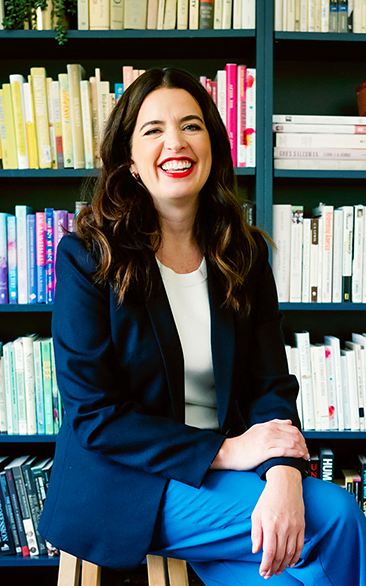


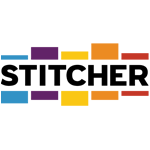





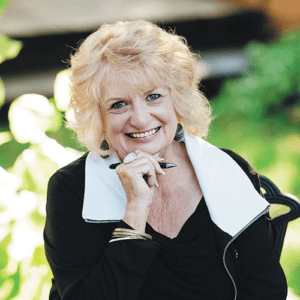
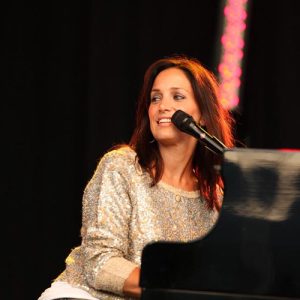
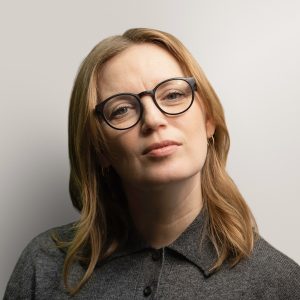
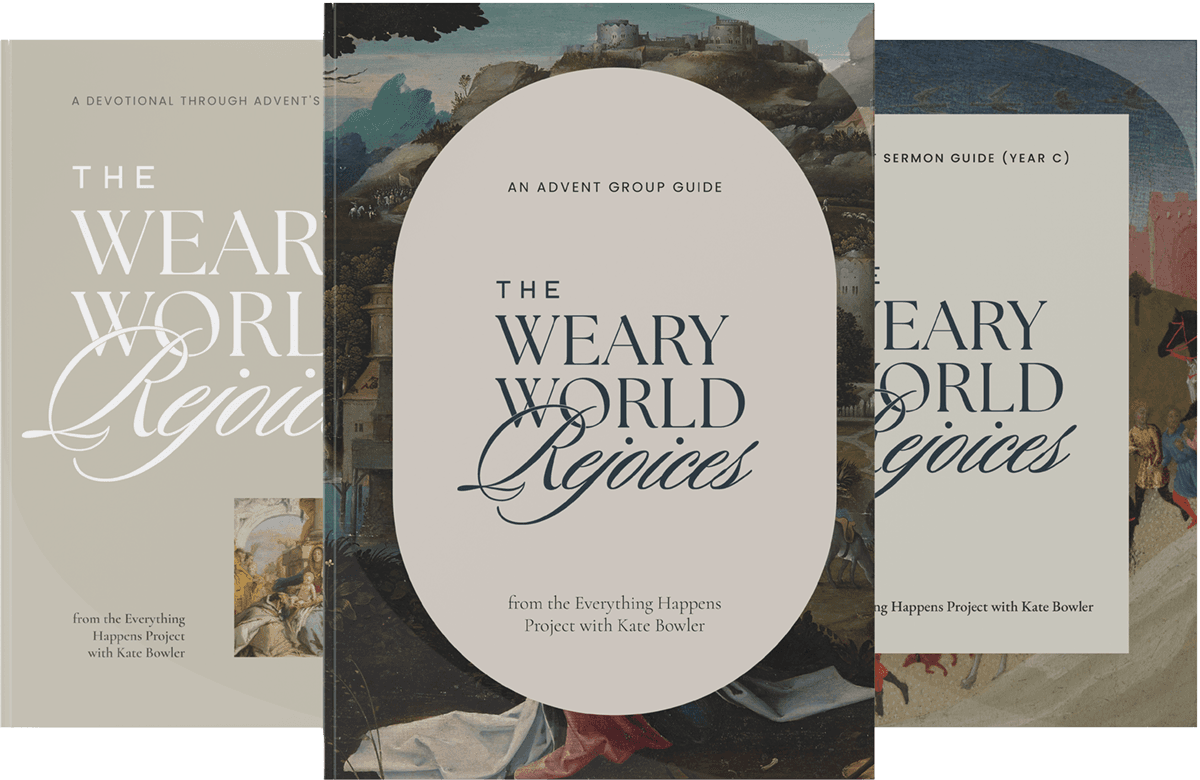
Leave a Reply